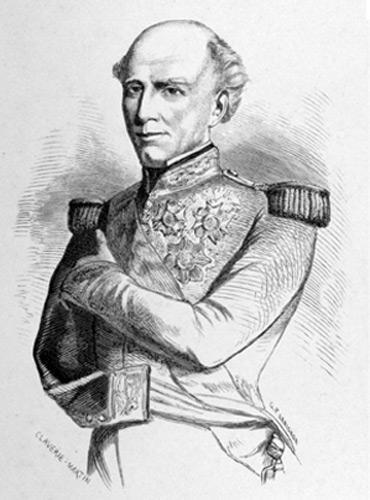The Admiral Charles Baudin (1784-1854)
A protestant with a strong faith who served in the NavyCharles Baudin had an excellent career in the Navy. He was a protestant with a deep personal faith and became the first president of the Central Council of Reformed Churches.
His military career
Charles Baudin was born on 21st July 1784 in Paris ; his father had served in the Convention (Baudin des Ardennes). As he had Bonaparte’s protection, he was able to go into the Navy in 1799. From 1800 to 1803, he took part in an expedition to the South Pacific under captain Nicolas Baudin (who was not of the same family). He then served in the West Indies, based in the Ile de France (the Mauritius), on board the frigate la Piémontaise and later the Sémillante, on which he was badly wounded in 1808 while engaging in combat with the English frigate the Tepsichore.
When he came back to France in 1809, he was given the command, as lieutenant, of the brig Le Renard, which escorted convoys of merchant vessels between Genoa and Toulon. He was wounded once more in 1812 while engaging in combat with the English brig The Swallow, but the convoy he was protecting was able to shelter in the bay of Saint-Tropez. He was in command of the frigate La Dryade and after that, in 1815, the corvette La Bayadére, with themission of defending the Gironde region. Napoléon the 1st, in Rochefort, asked Baudin to take him across the Atlantic to the United States. He replied that it was possible to take him on board an American privateer which sailed at a good speed, with a limited number of soldiers. However, as the Emperor was advised against such a decision by some of his close councillors, he changed his mind at the last minute.
At the time of the Restoration, Charles Baudin, by now promoted to the grade of captain of a frigate, left the Navy and settled in le Havre as a ship-owner. In 1830, though, he was back in the Navy again, promoted to captain in 1834 and was in command of several vessels. In 1838, as rear admiral, he led the French expedition to Mexico (with instructions to take the forts of Saint Jean d’Ulloa) and was asked to be the “mentor” of the prince de Joinville, the son of king Louis-Philippe. He became vice-admiral in 1839.
In 1840 he was appointed commander of the French Navy in Rio de la Plata. In 1841, he became the maritime prefect in Toulon. Then in 1847, he was appointed president of the Council of the Admiralty in Paris.
In 1848, when the king was no longer in power, he was asked by Arago, his friend from the days of the Office of Longitudes, to take command in Toulon of the French Mediterranean fleet. When he was in this post he played an important role both in maintaining discipline in the fleet and also in persuading the temporary government to refrain from its proposed political purging of the officers. He spent the last four years of his life in Paris, from 1850 to 1854.
On 27th May 1854, when Charles Baudin was lying on his sickbed, emperor Napoleon placed the Admiral’s baton beside him. (This was as important a grade as being “maréchal de France). He would have been in command of the North Sea fleet (the Crimea expedition) had he not died before its departure, on 7th June, 1854.
He married in 1822 and had two sons.
Charles Baudin was a protestant of deep convictions
For Charles Baudin, his conversion to Protestantism had been “a matter of conscience”. Consequently, he had asked to be freed from his oath as “chevalier de Saint Louis”, but he had hastened to add that this “only referred to the part of the oath concerning the practice of Roman Catholicism.”
He was a member of the parish council and of the consistory of the Eglise reformée in Paris. In 1853, when the central Council of the reformed Churches was set up, emperor Napoleon III asked him to be the president, a position which he held until the end of his life ; nothing was ever too difficult for him – he gave all the time and energy he had in the service of the Council, putting to good use his influential position in society and politics. “His faith was very strong, he was a most pious man who strived without ceasing for lasting reconciliation between Christians.”
He was largely instrumental in the re-establishing of naval chaplains, both catholic and protestant, on board vessels, but he also attached great importance to the respect of protestant acts of worship. Indeed, this can be seen in his letter to the Minister for Public Instruction and Religious Worship, in April 1854 : “The central Council (of reformed Churches) desires you to come to an agreement with the Minister for the Navy so that every Sunday on board all the vessels of the Fleet during the mass, sailors belonging to either group of the Protestant Church, may be free to assemble in order to pray or read the Scriptures. You are also required to give orders to this effect : no Catholic chaplain or person in command of the vessels is allowed to hinder the distribution of Bibles and religious tracts intended for the personal use of the above- mentioned Protestants.”
Bibliography
- Books
- L’Amiral Baudin, Extrait des protestants illustres, Typographie de Ch Meyrues et cie, Paris, 1863
- Fonds Baudin, Service Historique de la Marine
- CABANEL Patrick et ENCREVE André , Dictionnaire biographique des protestants français, de 1787 à nos jours, Editions de Paris - Max Chaleil, Paris, 2015, Tome 1 : A-C
- Vice Amiral JURIEN de LA GRAVIERE, L’Amiral Baudin, PLON, Paris, 1888
Associated notes
-
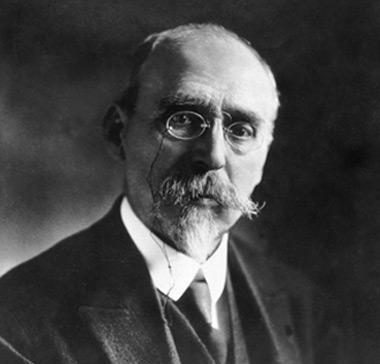
Ferdinand Buisson (1841-1932)
One of the main inspirers of school legislation of the third republic, Ferdinand Buisson was a French politician in favour of laity, co-founder and president of the Human Rights League,... -
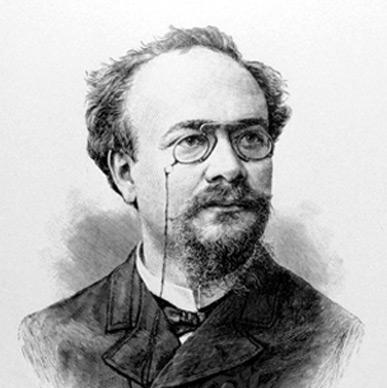
Eugène Réveillaud (1851-1935)
-
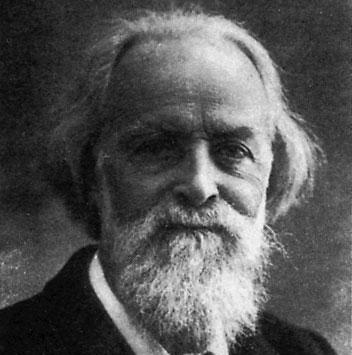
Elisée Reclus (1830-1905)
Elisée Reclus devoted all his energy to the exploration of the planet and published books which extolled its wonderful qualities. He is also known for his defense of the Anarchist... -
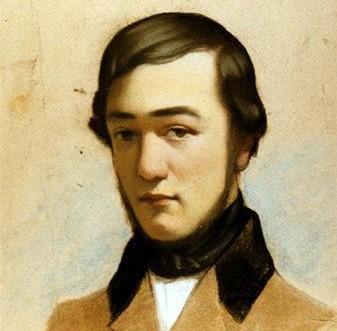
Charles Read (1819-1898)

